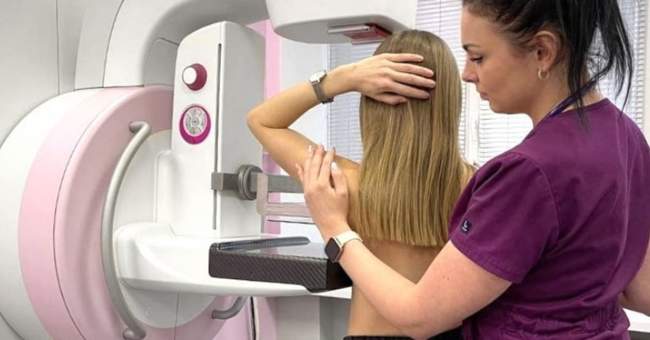Меню
Соціальні мережі
Розділи
Breast cancer is one of the most common cancers among women, the Ministry of Healthcare writes. However, early diagnosis significantly increases the chances of recovery and can save thousands of lives. If breast cancer is detected at the first stage, the chances of cure are over 95%.
An effective breast examination is mammography (examination using an X-ray machine - a mammograph). This method allows you to detect malignant and benign tumors and abnormal tissue development in the mammary glands at the initial stages.
Mammography is an accurate and safe diagnostic method, as the radiation exposure during the examination is very low. It should be noted that this is one of six free examinations for the early detection of cancer paid for from the state budget under the Medical Guarantee Program.
Referral
In order to undergo a mammogram, a woman needs to take a referral for diagnostics from a family doctor with whom she has signed a declaration, or from a primary care doctor (general practitioner/family doctor, pediatrician) if you have lost contact with your doctor.
A referral can also be issued by a personal doctor (if indicated).
During martial law, a referral can be either electronic or paper-based.
How to choose a hospital where it is convenient to undergo an examination
It can be a medical institution in any region of the country that has the appropriate equipment and an agreement with the NHSU. Your place of registration or actual residence does not matter, and referral services will be provided free of charge at any of these facilities.
How to find out about the institutions that conduct such a study free of charge
This can be done through the NHS operator by calling 16-77 (contact center) if the NHS dashboards are temporarily closed due to martial law.
Mammography is performed on an outpatient basis
The service includes:
- pre-examination consultation with a doctor and analysis of previous examinations (if available)
- X-ray examination in two projections, if necessary, additional projections and a targeted image
- analysis and description of the results, providing recommendations for the next examination;
- referral (if necessary) to other medical services;
- recording the results of the examination on a digital medium, which will be given to you.
Given the prevalence of the disease, it is important for women to undergo regular examinations:
- from the age of 20 - self-examination of the mammary glands (on days 6-12 of the cycle);
- over 40 years of age - annually (upon referral);
- for younger patients, a doctor may also write a referral if he or she suspects a neoplasm.












